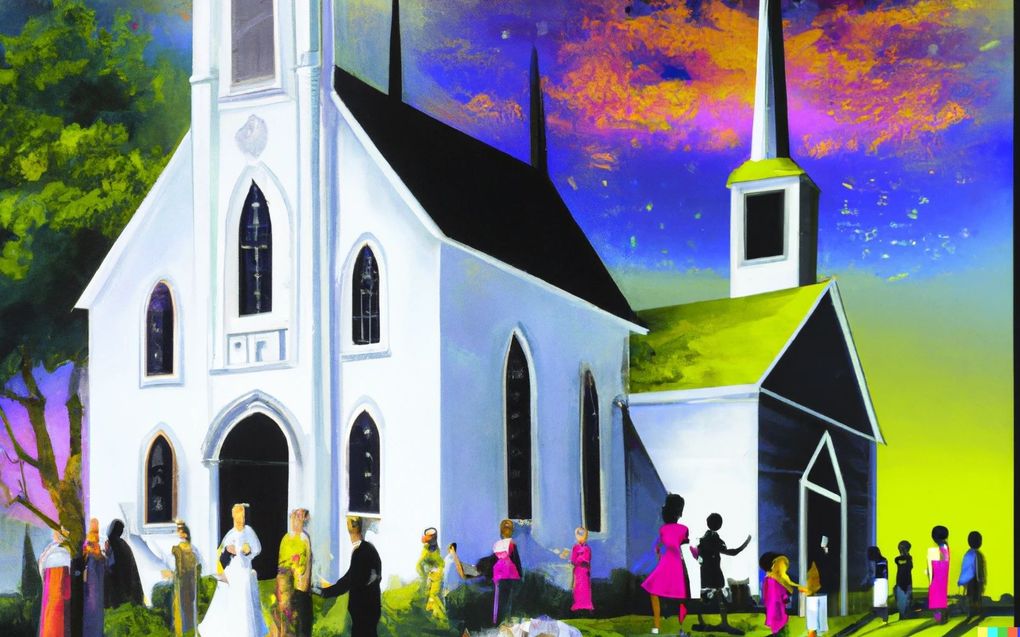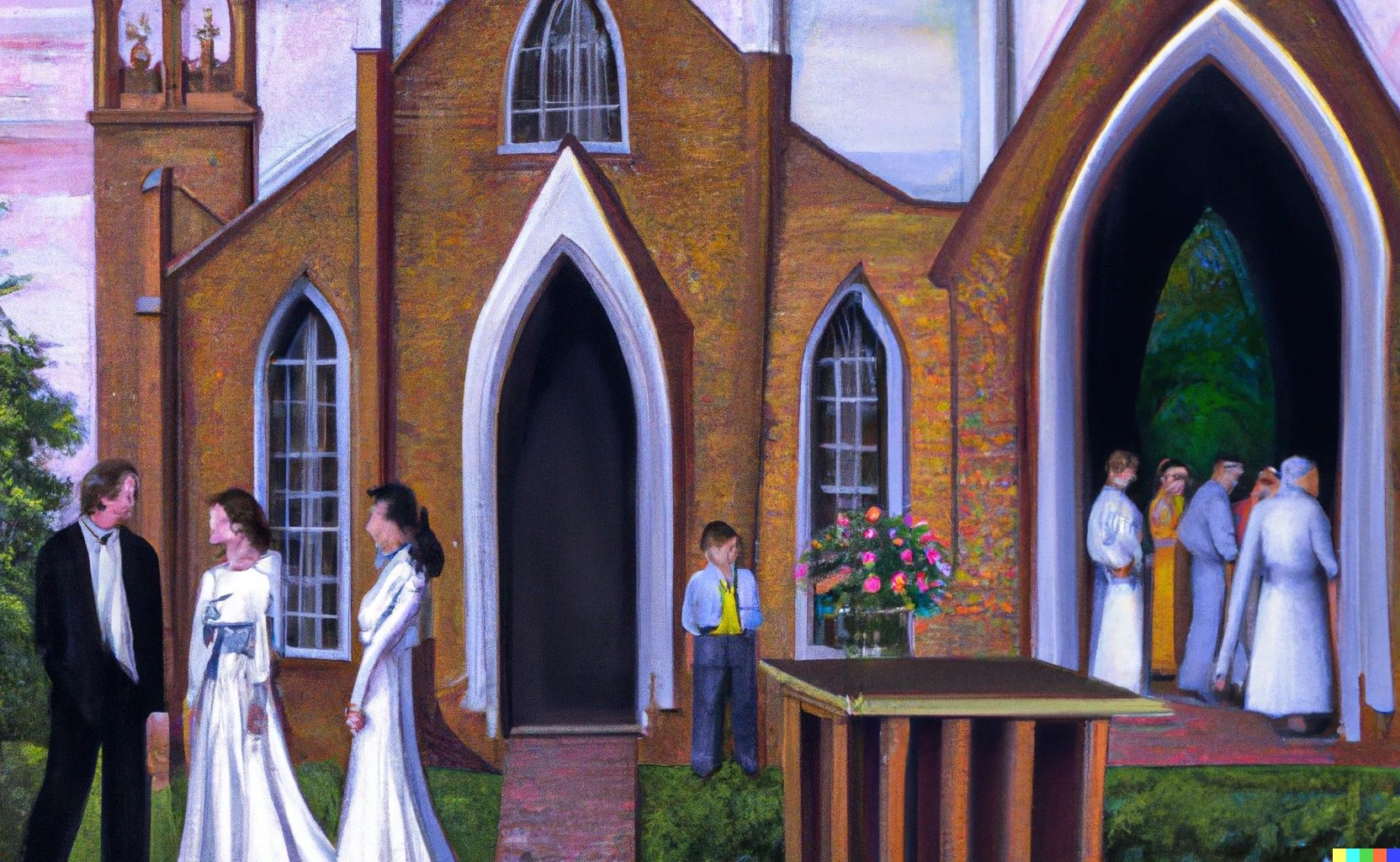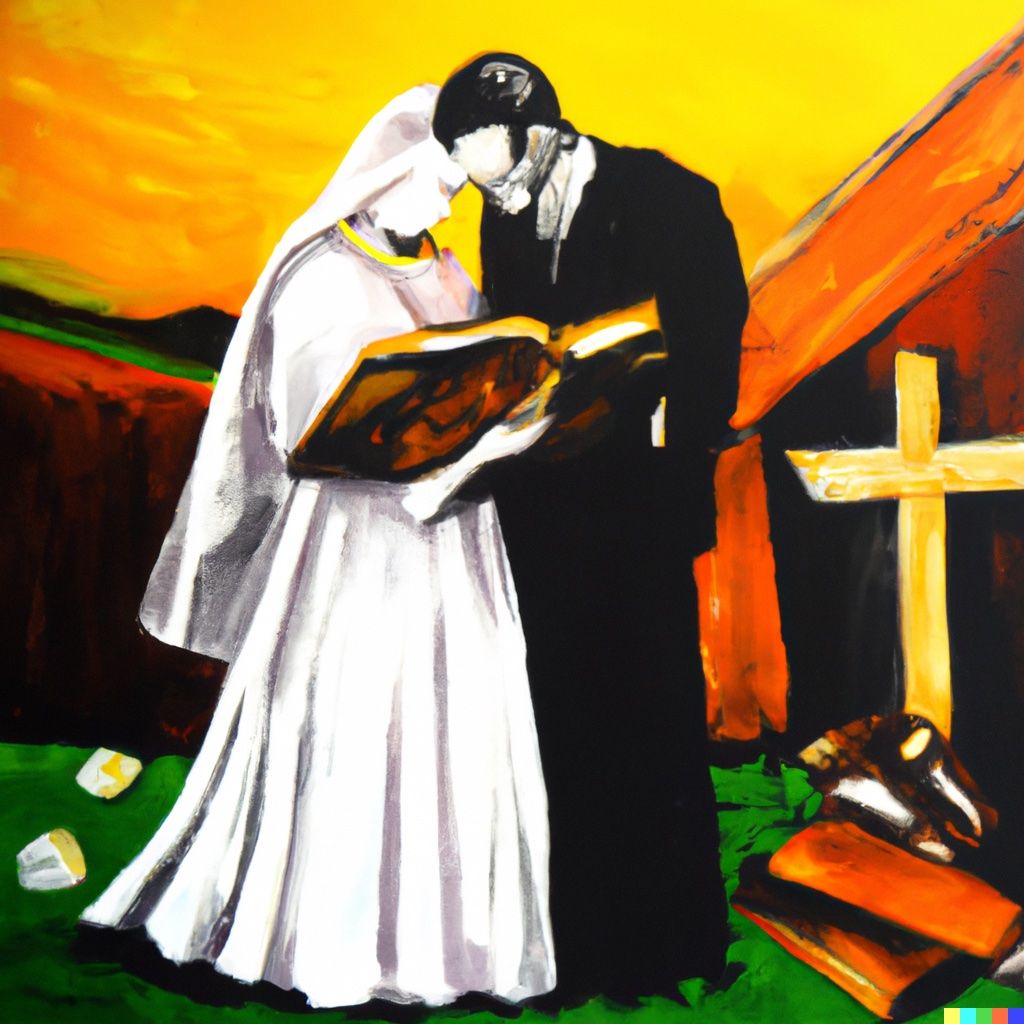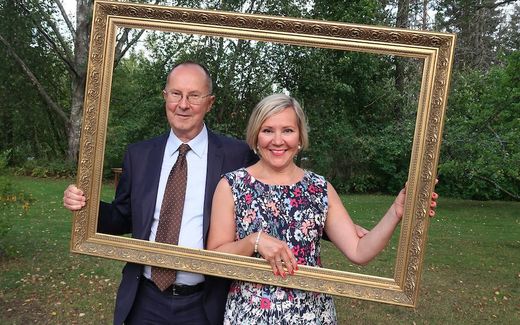Evert’s comment: This is why churches usually split on same-sex marriage

Marriage has always been sacred for the church. No wonder if a new definition of marriage divides the community. Picture from Dall-E, CNE
Opinion
The worldwide Anglican community is about to divide. Many churches cannot accept that the church’s leadership is ready to bless same-sex relations. The fact is that many communities split as soon as gay relationships were embraced.
Harmony, openness, and acceptance. That is what ‘rainbow Christianity’ promises. Why not just broaden your traditional view of marriage and extend it with something extra? We would all profit from getting more complete, wouldn’t we?
No, we would not, many people within the church have said so far. The past 30 years show that this issue has not brought harmony to the church. On the contrary, it has given tensions. Same-sex marriage has produced much division.
It is not only the Anglican community that is splitting about this. Many other churches have experienced that before. In several parts of the worldwide Anglican church, dioceses have organised themselves independently already. The United Methodist Church, present in several countries, has split about this. This issue was present underwater in some other churches when two groups parted, like in 2004 in the Dutch Reformed Church in The Netherlands.
Some churches have not split about this issue, like the Lutherans in the Scandinavian countries. From a distance, it seems peaceful. But everybody who looks closer can see that there is tension too. Pastors and parishes were free to stay with the traditional view of marriage. But in Sweden, for instance, there is debate about whether a priest can say No to a same-sex wedding. The tendency is to outlaw this.
The Roman Catholic Church is still unified. But listening to the voices from the Synodal Way in Germany, it is clear that the church is not as unified as it seems.
Co-existence
But if (nearly) all churches split about this issue, would it not be possible to find a way of “peaceful co-existence”? Churches have found ways to work with different visions on baptism, divorce or female clergy.

I do not think such a solution will be possible since the issue of marriage is a core element in the Christian understanding of redemption. In Ephesians 5, Paul explains that in marriage, the relation of husband and wife reflects the relation of Christ and His church. By definition, this is a heterogeneous relation that cannot be replaced by man-man or woman-woman.
In other words, marriage is fixed in the New Testament. The ‘culture’ of marriage is open to change and innovation, but the ‘nature’ is not.
For this reason, the Christian vision of marriage is not open to polygamous or polyamorous relations either. For most people, this seems self-evident. But some Swedish theologians have pleaded for openness to that as well.
If relationships are just human inventions, all that should be fine. But what if they depend upon God’s revelation? In that case, the idea of same-sex relationships deviates from that.
Integrating
I know there is discussion among historians about whether marriage-like faithful same-sex relations existed in Paul’s time. Some say, yes, they existed. Others say, no, homosexual contacts were always additional to heterosexual marriage.
Through the ages, it has been like the latter: an ‘alternative’ to what you did at home. In many countries, it still is.
Some say that Paul could (and would) have written something else in Ephesians 5 if he had known of a decent cohabitation of same-sex partners. I have given that a thought, but I doubt it. Paul and the other apostles were very flexible in adapting Jewish thinking to the Greek and Roman. Look at the image of the Armour of God in Ephesians 6; that’s not a Jewish soldier but a Roman. The same with the food laws: the New Testament era has something new.
Suppose the concept of marriage was open to same-sex relationships. In that case, Paul could have integrated that into the Biblical idea of two faithful people living together. But he did not. On the contrary, he warns against this (see Romans 1).
Renewal

Could it be that the opponents against same-sex relations are just hopeless traditionalists who would be against all renewal of the church? And that the next generation would be more used to this? Of course, that is possible. But at the root of the issue, marriage is such a central topic that it is difficult to reconcile with fundamental changes. In other words, alternative relationships remain alternative. They will never be equal.
Because of this, churches must choose: Do they choose the Bible to be the authoritative revelation of God’s will to His people? Or can we decide about that ourselves?
If it was difficult for Paul to adapt to same-sex marriage, it is not strange that it is difficult for many Christians now. This explains why churches have and will have difficulties with this.
Evert van Vlastuin (1972) has been working as a journalist from the early 90s.

He has interviewed several Nobel Peace Price winners as the former South African president F. W. de Klerk and two from Northern Ireland, John Hume and David Trimble.
From 2001, he worked as a foreign news reporter for the Dutch Reformed Daily. Since 2021, he works as managing editor for the start-up CNE.news.
Respond to Evert by e-mail.
Related Articles










